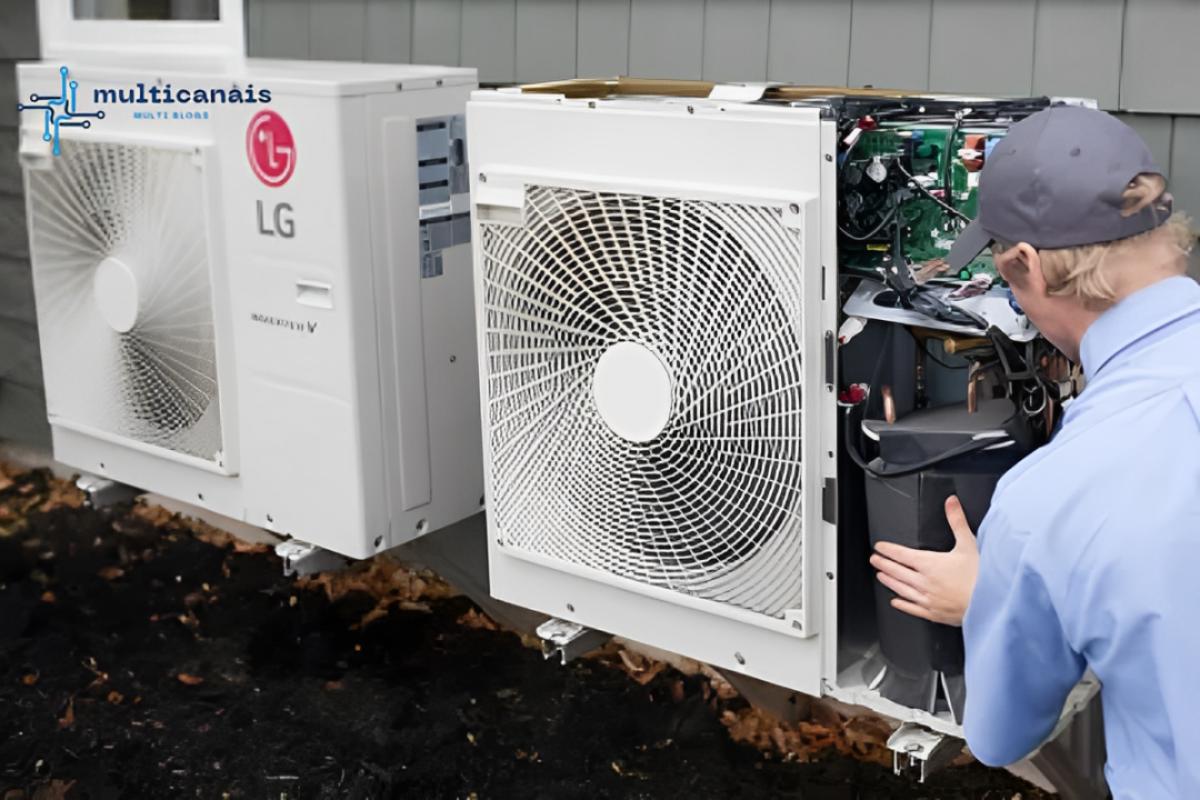Heat pumps are the best tools for keeping a house warm and cool throughout the year while saving money on utilities. Most homeowners forget about one essential factor that would realize maximum energy savings: heat pump maintenance.
Your desire to enjoy low energy costs, better performances, and a longer-lasting system requires you to be on top of your game in maintaining care for your heat pumps. Explore everything you need to know about keeping your Heat Pump Maintenance running efficiently with this comprehensive guide.
Why Maintain a Heat Pump
Your heat pump works hard, cycling almost all the time to keep it warm during winter months or cool during summer. Over time, it begins accumulating dust, debris, and wear, which reduces its efficiency and increases your energy bills.
Maintaining a well-functioning Heat Pump Maintenance will provide some high-level performance while using up to 30% less energy than an unmaintained system.
Proper maintenance will ensure the heat pump works as it should; your home stays comfortable without wasting energy. Not maintaining the heat pump will cost you more energy bills and add to the possibility of expensive repairs or even an early system replacement.
Signs Your Heat Pump Requires Maintenance
A well-working heat pump sounds nice and works great. It often shows symptoms if it’s not working right, such as:
- Rising energy bills without a change in usage.
- Unusual sounds from the system, such as rattling, buzzing, or grinding.
- Temperature fluctuations inside, with rooms sometimes colder and hotter than they should be.
- Frequent cycling means something is wrong and is putting extra stress on the system.
- Less airflow coming out of vents; something’s wrong there too.
If you see any of these, your heat pump is calling for a little TLC.
DIY Heat Pump Tips
Some simple maintenance can be performed by the homeowner in between professional tune-ups to keep the system operating well. Begin by ensuring that the air filters are clean or changed as needed. Dirty air filters impede airflow, and your Heat Pump Maintenance needs to work and use more energy. Filters should be inspected at least monthly, most often during peak heating or cooling seasons.
Check the outdoor unit for debris, such as leaves, grass, and dirt. These items may clog up the airways of your unit, thus lowering efficiency. Remove any obstructions carefully while maintaining at least two feet of clearance all around the unit for proper airflow.
Another simple maintenance is to verify that your thermostat is set to the right mode for the season. You can actually even install a programmable or smart thermostat. It will allow you to maximize the use of your Heat Pump Maintenance as well as reduce your energy costs; you can turn off the heat while you are away.
Professional Heat Pump Maintenance: A Good Investment
While DIY tasks help maintain efficiency, some aspects of heat pump care are better left to professionals. A tune-up by an HVAC technician includes much more detail than you could ever do on your inspection, cleaning, and adjustment.
They check on refrigerant levels, clean coils, lubricate moving parts and check all electrical connections so everything works smoothly.
They can even diagnose problems early, saving you from costly breakdowns later on. Missing professional maintenance could even void your manufacturer’s warranty so do not skip this important step.
How Maintenance Saves You Money By Keeping the Energy Costs Down
When your heat pump is clean and well-maintained, it need not work as hard to attain the desired temperature. This translates directly to energy consumption as well as bills.
For instance, when the filter is clogged, airflow can be reduced up to 20%, hence forcing the system to use more energy. Similarly, dirty coils reduce the efficiency of heat transfer while forcing the energy use to increase further.
Regular maintenance also helps the system heat or cool your home much more evenly, so you don’t need to adjust the thermostat so often. All those savings will accrue over time, thereby making maintenance a cost-effective strategy for keeping energy bills in check.
How Often Do You Need to Maintain Your Heat Pump?
Schedule regular professional heat pump maintenance at least annually for optimal performance. It’s usually best to have your system serviced in the spring for cooling and in the fall for heating, therefore ensuring that it will be prepared to handle the needs of the current season.
Between professional visits, take time to do even the simplest of maintenance tasks, such as filter changes or debris removal. Routine maintenance prevents problems and assures peak efficiency.
Long-term benefits of maintenance
In addition to the reductions in your energy bills, regular heat pump maintenance offers a number of longer-term benefits. A well-kept heat pump lasts longer, so you won’t need to find and purchase a replacement as soon. It also gives you more consistent performance, so breakdowns are less likely to occur during extreme weather.
Another factor to consider is the environmental impact. A clean, efficient Heat Pump Maintenance uses less energy, which means having a reduced carbon footprint. This makes maintenance an eco-friendly choice for households looking to minimize their environmental impact.
Some Frequently Asked Questions About Heat Pump Maintenance
How much does professional maintenance cost?
A common heat pump tune-up should run anywhere between $150 and $300, depending on the location and complexity of the work. Because this investment will translate into lower energy bills and fewer repairs over time, it is worth sticking to a routine.
Can I skip maintenance if my heat pump seems fine?
Even if your heat pump looks good, regular maintenance is extremely important in catching hidden issues. Issues like refrigerant leaks or worn parts are probably not observable but are bad enough to leave unsolved.
Is maintenance worthwhile on an older heat pump?
Absolutely! Proper maintenance for older systems can extend the life of older systems, delay the need for replacement, and provide continued efficiency.
Conclusion
Investing in heat pump maintenance is one of the smartest ways to lower energy bills and keep your home comfortable year-round. By combining regular DIY care with professional tune-ups, you’ll ensure your system operates at peak efficiency for years to come.
Don’t wait for a breakdown or rising bills—start your heat pump maintenance routine today and enjoy the benefits of lower costs, better performance, and peace of mind.
More Read: Gas Absorption Heat Pump: Smart Heating with Lower Energy Use


2 thoughts on “Heat Pump Maintenance: A Guide to Lower Energy Bills”